The Faking It magician who now teaches magic
- Published
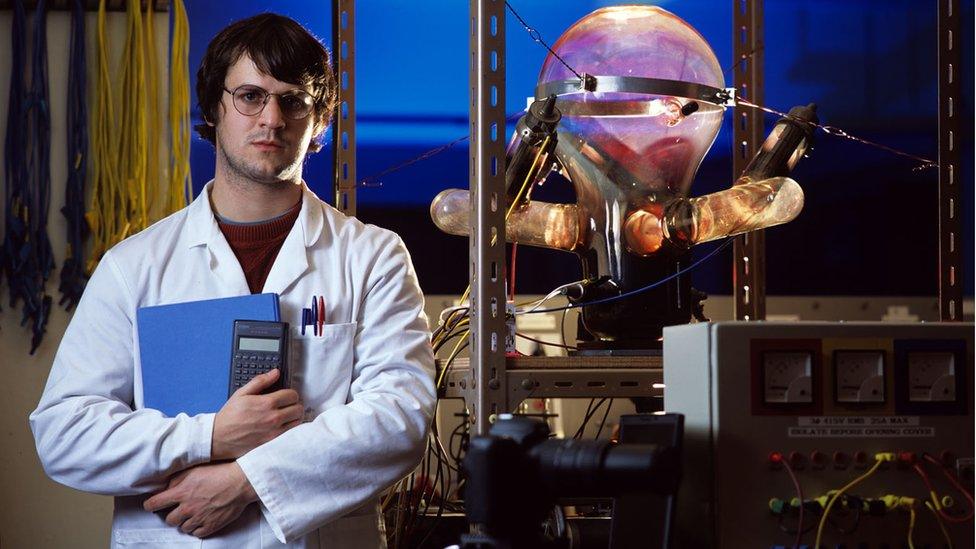
Kevin McMahon was a PhD student when he applied for the Faking It show in 2006
When he was 10, Kevin McMahon performed tricks from his new magic set for his brother and sisters but he gave up when he started getting into physics and maths.
Years later, he was mid-way through a physics PhD at Heriot-Watt University in Edinburgh when magic came back into his life.
In 2005, the Channel 4 show Faking It, which gave contestants four weeks to convince a panel of experts they were in a completely different profession, was looking for a physicist to train as a magician.
Kevin successfully applied and among the experts he had to fool was Paul Daniels, Britain's most famous TV magician, and the man whose name was on the magic set he had as a child.
"It was an amazing experience," Kevin says.
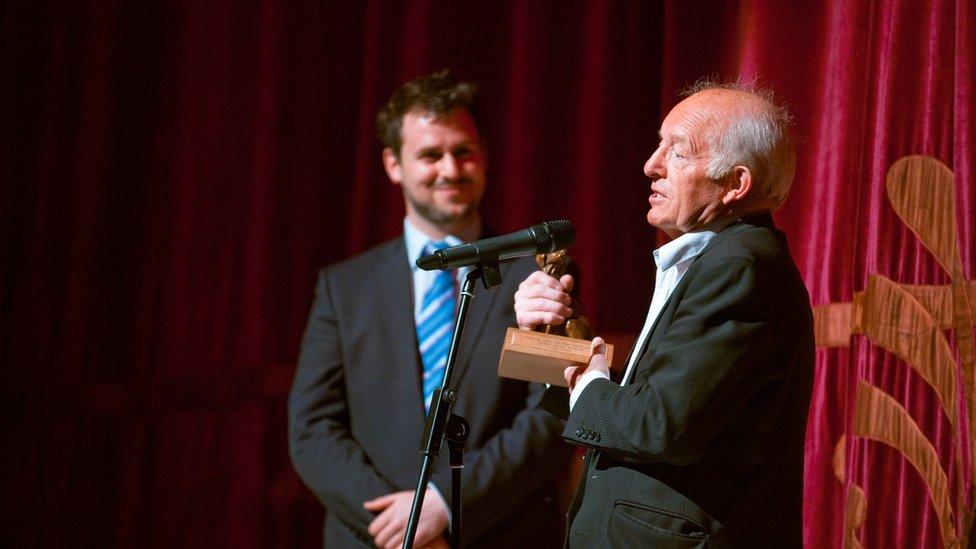
Kevin with British TV magician Paul Daniels
Kevin says fooling Paul Daniels was the "victory" point of Faking It.
"When I found out it was pretty euphoric," he says.
"I was jumping about with an expensive suit on, paid for by the production company, throwing champagne around."
However, convincing top American magicians Penn and Teller was another matter.
"I was woefully underprepared and they saw right through it," Kevin says.
"I think they realised that I was performing material that I didn't like.
"They made me realise that you have to really get excited about the magic you're presenting or the audience will see through you right away."
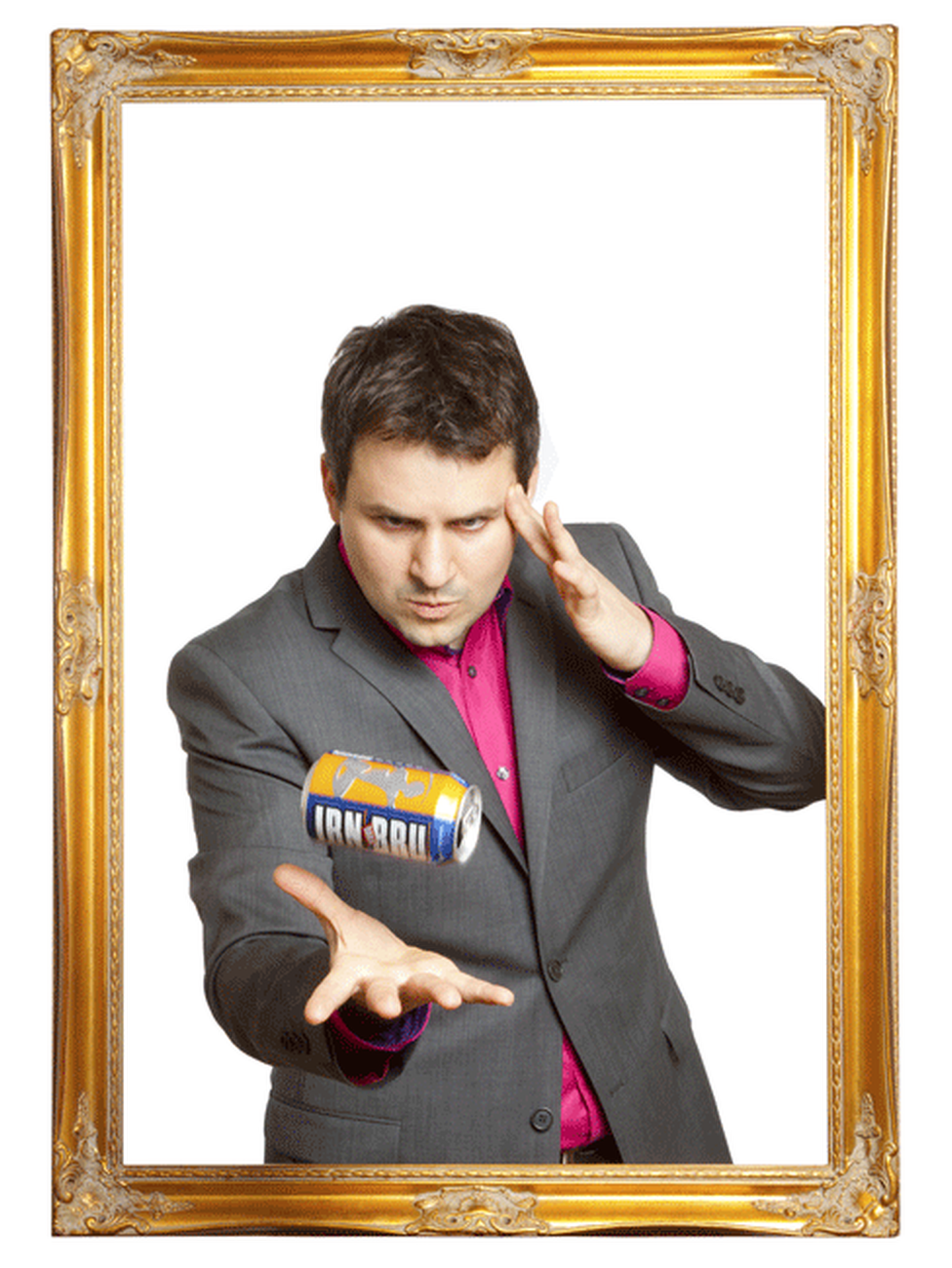

Despite his success on the show, Kevin returned to Edinburgh, with no ambition other than completing his PhD.
"It was only a few days later, it crossed my mind I could give magic a try," he says.
"I was reluctant to tell my mum and dad because when you're already a scientist, it's the equivalent of running away to join the circus."
Kevin gave himself a year, and by the end of 2007, he had become a magician - Kevin Quantum - who incorporated his scientific background into his style and shows.
Since then, he has toured the world, staged regular shows at the Edinburgh Fringe and got to the semi-finals of Britain's Got Talent.
"BGT was a bit of a dream," he says.
"The production company had been chasing me for years to do it but I'd always resisted," Kevin says. "Magicians hadn't really come across well on the series."
However, Kevin came up with a new cannonball pendulum illusion - with the added element of it being set on fire.
"It went down incredibly well," he says.
He did not win but the show made him realise how he could take his magic to the "next level".
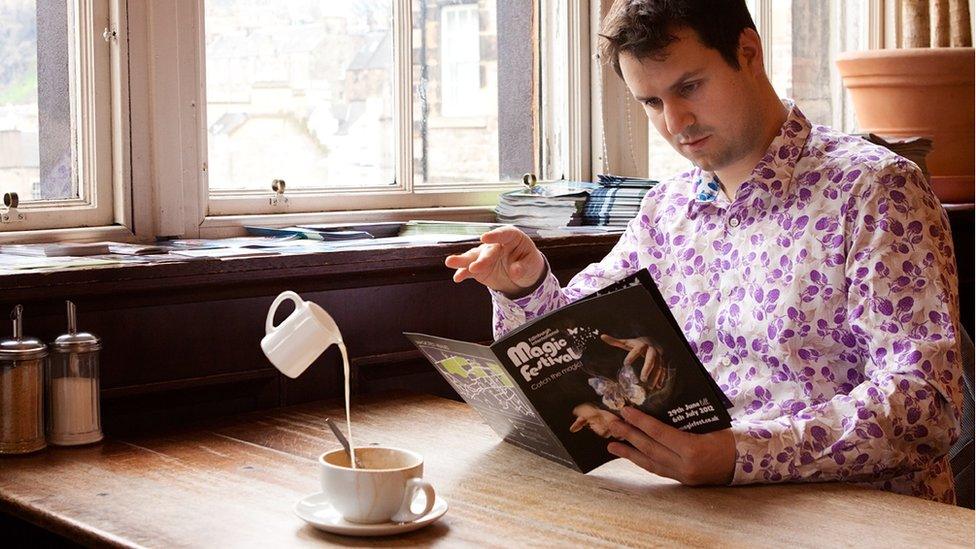
Thirteen years ago, Kevin set up his own festival in his home city of Edinburgh, along with his wife Svetlana.
And one of its ambitions was to create new magicians.
Sharing advice seems at odds with the world of magic, and the magician's organisation, The Magic Circle, but Kevin believes it is possible to do it without giving away too many trade secrets.
"Maybe because I got into magic a bit later, I didn't come in as someone who had been hoarding magic since they were 11," he says.
"The tricks are a very small part. The real skills are in the presentation, the confidence, the desire to show someone else. Then you build in numeracy, and literacy and science. "
Five teenagers are being mentored by professionals - one of them, Dan Bastianelli - started his career in a festival workshop, on the Future Magicians programme.
The teenagers will each perform a short routine on stage at the Scottish Storytelling Centre in Edinburgh at the end of December.
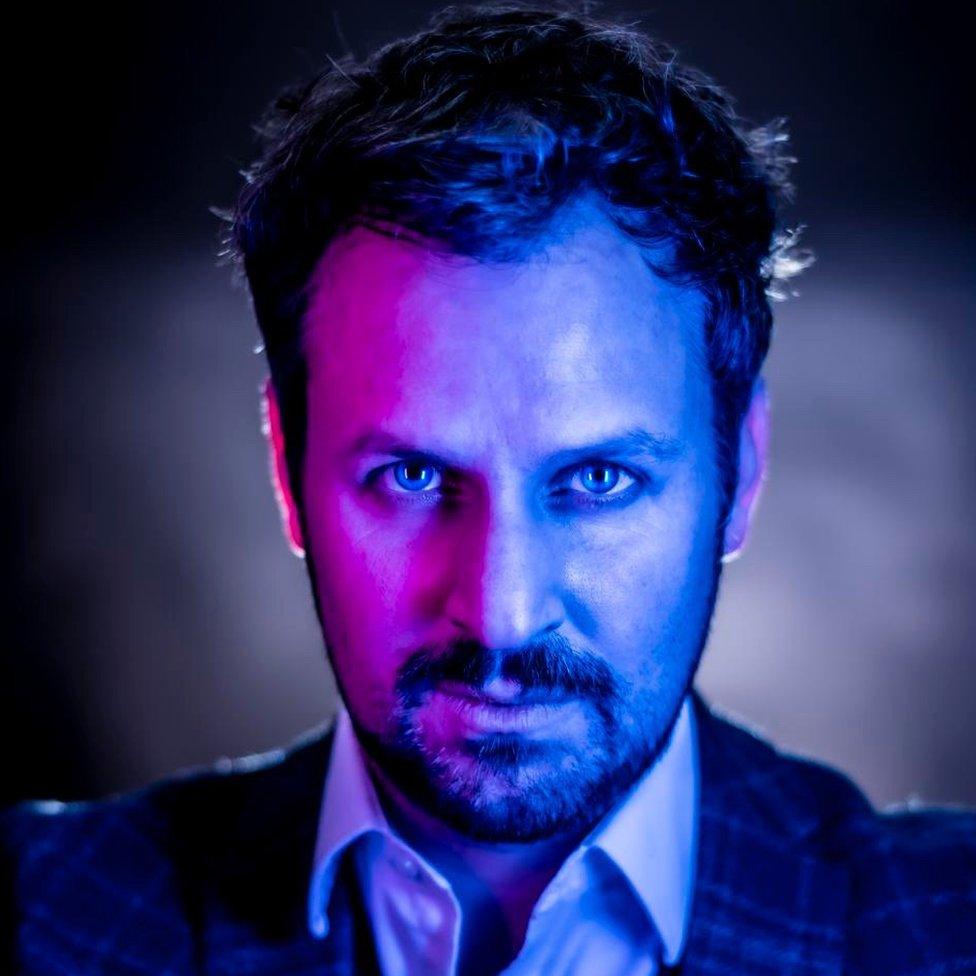
Kevin says magic is best enjoyed in person

Kevin says: "It's not a competition, it's about improving and mentoring them and making the next generation of magicians."
"It's taken me 15 years to get to where I am. If I can help these guys shave some time off that journey then I'm absolutely going to do that."
"Whether that means as adults they are a bit better in front of colleagues giving a presentation, hitting the gig economy with this being the bit on the side, or becoming professional magicians, I don't mind, I just like that they're getting something really positive.
"And I'm selfishly looking forward to getting them cheap at the magic festival in years to come."
This will be the Edinburgh Magic Festival's first full programme since 2019 - last year's festival was cancelled just days before it was due to begin - and Kevin believes there's a renewed appetite for live magic.
"Magic's popularity is as enigmatic as magic itself," he says.
"Magic is best enjoyed in person - sitting a few metres away from something impossible happening is different from sitting a few metres from your television watching something impossible happen to someone else."
"The experience of wonder and amazement is so rare in this world."
Edinburgh Magic Festival is on across the city until 31 December., external